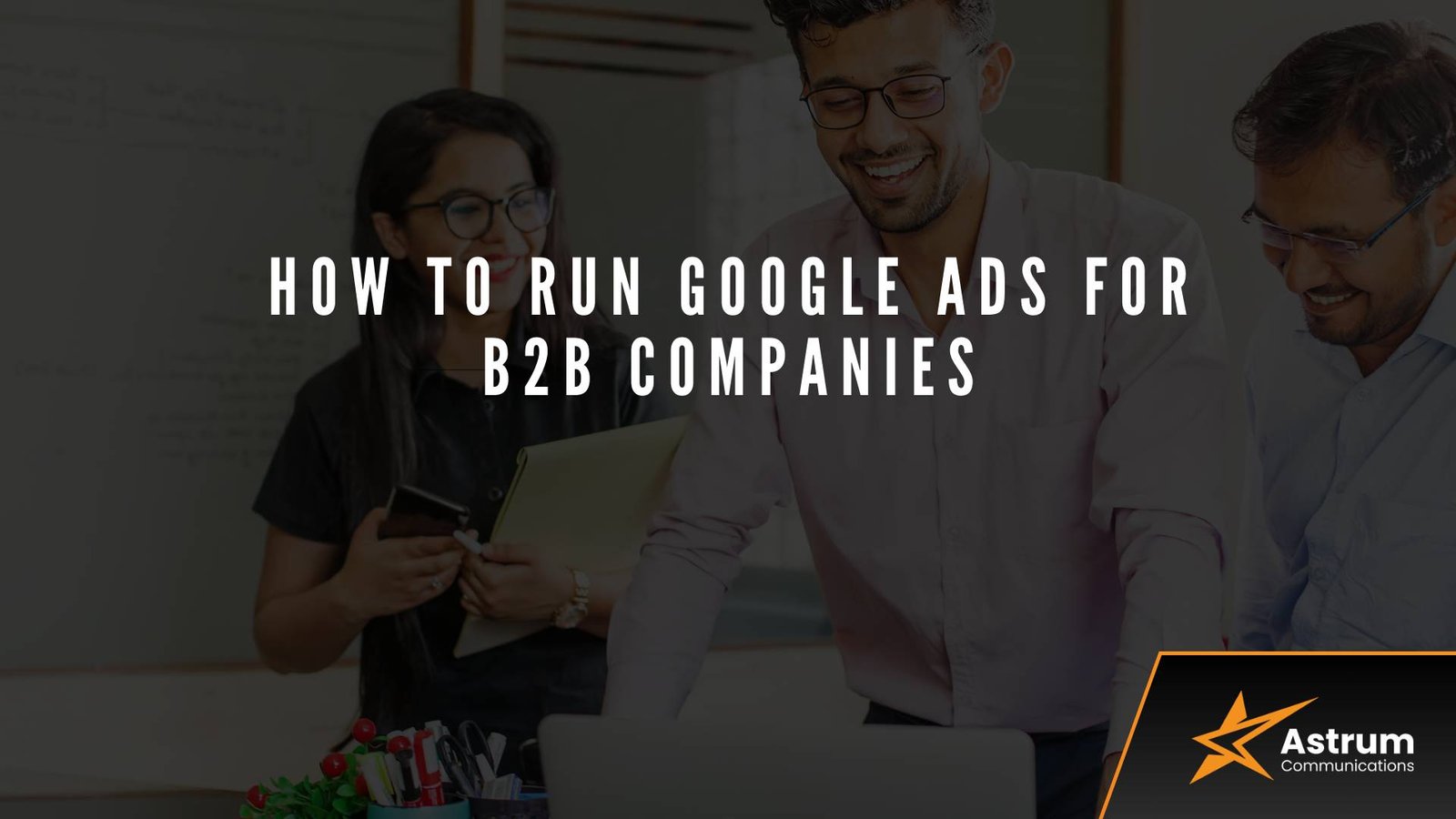Running Google Ads for B2B businesses involves understanding your target audience and creating relevant campaigns. By focusing on topical authority and enhancing your entity SEO, you can effectively drive qualified leads and boost your brand’s visibility in a competitive marketplace.
Table of Contents
ToggleSetting Up Search Campaigns for Industry-Specific Keywords
Setting up search campaigns for industry-specific keywords is crucial for B2B companies aiming to reach targeted audiences effectively. Begin by researching relevant keywords that reflect your industry and customer needs. Use tools like Google Keyword Planner to identify terms with strong search intent. Next, create ad groups organized by specific themes, focusing on key products or services you provide. Craft compelling ad copy that highlights your unique value proposition and includes your chosen keywords. Ensure your landing pages are optimized for both SEO and user experience, providing authoritative content that addresses the searcher’s intent. Regularly monitor and adjust your campaigns based on performance data, refining your approach to improve ROI and engagement. By emphasizing topical relevance and authority within your content, you establish credibility that resonates with potential clients.
Using Location and Audience Targeting for B2B Clients
Using location and audience targeting in Google Ads is essential for B2B companies seeking to reach the right clients effectively. By defining target locations, businesses can ensure their ads appear to potential clients in specific regions, improving lead quality. Audience targeting further refines the strategy, allowing businesses to focus on decision-makers in particular industries or roles. This precision enables B2B companies to align their messaging with the interests and needs of their target market. Additionally, incorporating topical authority and entity SEO into ad content can enhance relevance, making it easier for potential clients to recognize and engage with the brand. Together, these strategies help B2B companies maximize their ad spend, generate meaningful leads, and build valuable relationships.
Writing Ad Copy That Highlights Business Solutions
Writing ad copy that emphasizes business solutions is essential for B2B companies utilizing Google Ads. The aim is to clearly communicate how your product or service addresses specific challenges faced by other businesses. Start by identifying the pain points your target audience experiences and match these with your solutions. Use straightforward language to convey your message, focusing on benefits rather than just features. Incorporate keywords relevant to your industry to enhance topical authority, ensuring that your ads appear in searches that matter. Additionally, structure your copy to establish your company as a trusted entity in the field, reinforcing credibility. By presenting your solutions in a clear, concise manner, you can effectively engage decision-makers and drive conversions in your Google Ads campaigns.
Using Ad Extensions for Contact, Sitelinks, and Location Info
Using ad extensions in Google Ads can enhance the effectiveness of your B2B campaigns by providing potential clients with crucial information. Contact extensions allow businesses to display phone numbers and direct communication methods, making it easier for prospects to reach out. Sitelink extensions offer additional links to key pages on your website, guiding users to relevant content and resources that showcase your expertise. Location extensions highlight your physical presence, helping customers find you quickly and reinforcing trust, especially for businesses with a local focus. By integrating these ad extensions, you can improve your ad visibility and attract more qualified leads, ultimately boosting your campaign’s success in a competitive B2B landscape.
Tracking Conversions with Forms and Landing Pages
Tracking conversions with forms and landing pages is essential for B2B companies running Google Ads. Effective landing pages should be designed to capture leads and drive specific actions, such as inquiries or downloads. By integrating forms on these pages, businesses can collect valuable user information. This data allows for better understanding of customer behavior and enhances the targeting of future ads. Utilizing conversion tracking tools helps in evaluating the performance of different campaigns, enabling companies to optimize their strategies over time. Additionally, ensuring landing pages are relevant and informative boosts their topical authority, enhancing SEO performance and overall visibility. This approach not only helps in converting visitors into leads but also builds a stronger online presence in the competitive B2B landscape.
Running Retargeting Ads for Previous Website Visitors
Running retargeting ads for previous website visitors is an effective strategy for B2B companies looking to reconnect with potential clients. After initial interaction, not every visitor converts, but retargeting helps keep your brand top-of-mind. By displaying tailored ads to users who previously engaged with your website, you can remind them of your services, highlight case studies, or promote special offers.
To set up retargeting through Google Ads, first, ensure your website has the necessary tracking code. This allows you to create audience segments based on user behavior. Next, develop compelling ad copy and visuals that resonate with these visitors. Regularly analyze ad performance to refine your approach. By consistently engaging with past visitors, you can increase conversion rates, enhance brand recognition, and ultimately drive growth for your B2B company.
Optimizing Budgets and Bids for Maximum ROI
Optimizing budgets and bids in Google Ads is essential for B2B companies aiming to achieve maximum return on investment (ROI). Start by analyzing key performance indicators (KPIs) such as conversion rates and cost per acquisition to identify which campaigns deliver the best results. Adjust your budget allocation to prioritize high-performing ads while gradually refining your bidding strategies, such as using automated bidding options tailored to your objectives. Regularly conducting A/B tests can provide insights into ad effectiveness, helping to optimize creative content and landing pages. Additionally, focusing on relevant keywords enhances topical authority, improving your ad visibility. Implementing these strategies can streamline your advertising efforts and ensure that your spend aligns with business goals, ultimately driving more qualified leads and increasing sales opportunities.
Conclusion
In conclusion, setting up search campaigns with industry-specific keywords is essential for B2B companies aiming to enhance their online presence. By focusing on topical relevance and entity associations, businesses can improve their visibility and authority in their niche. This strategic approach not only attracts targeted traffic but also fosters meaningful connections with potential clients. For tailored strategies that drive results, consider partnering with Astrum Communications, where we specialize in optimizing your digital marketing efforts for maximum impact.


